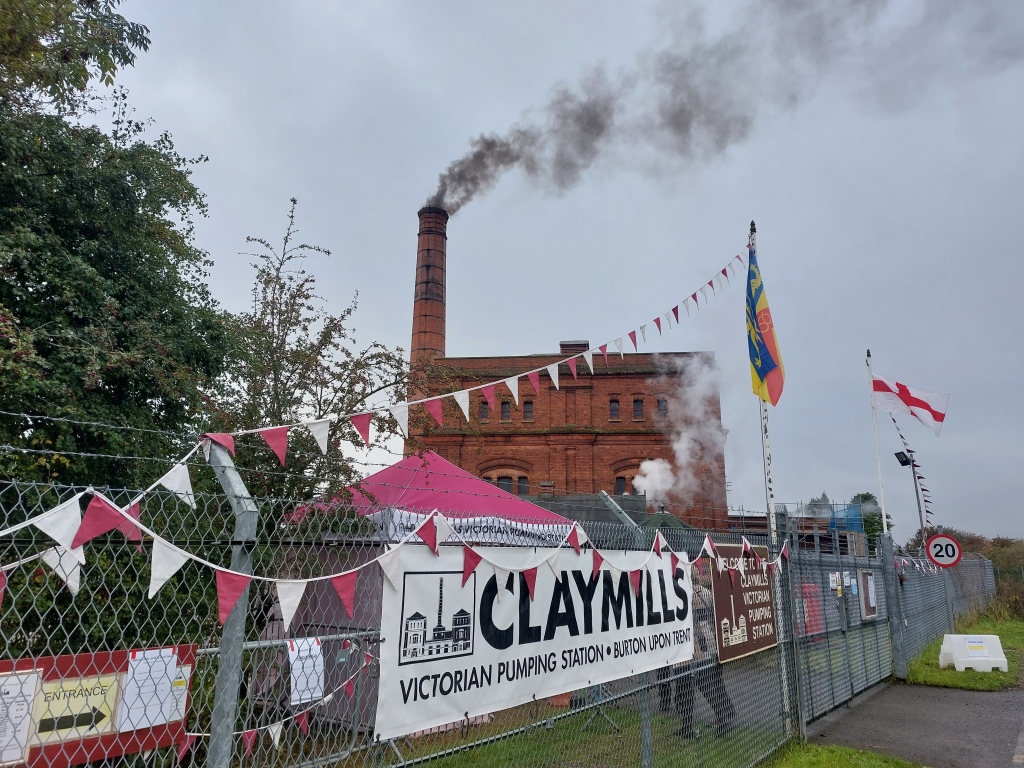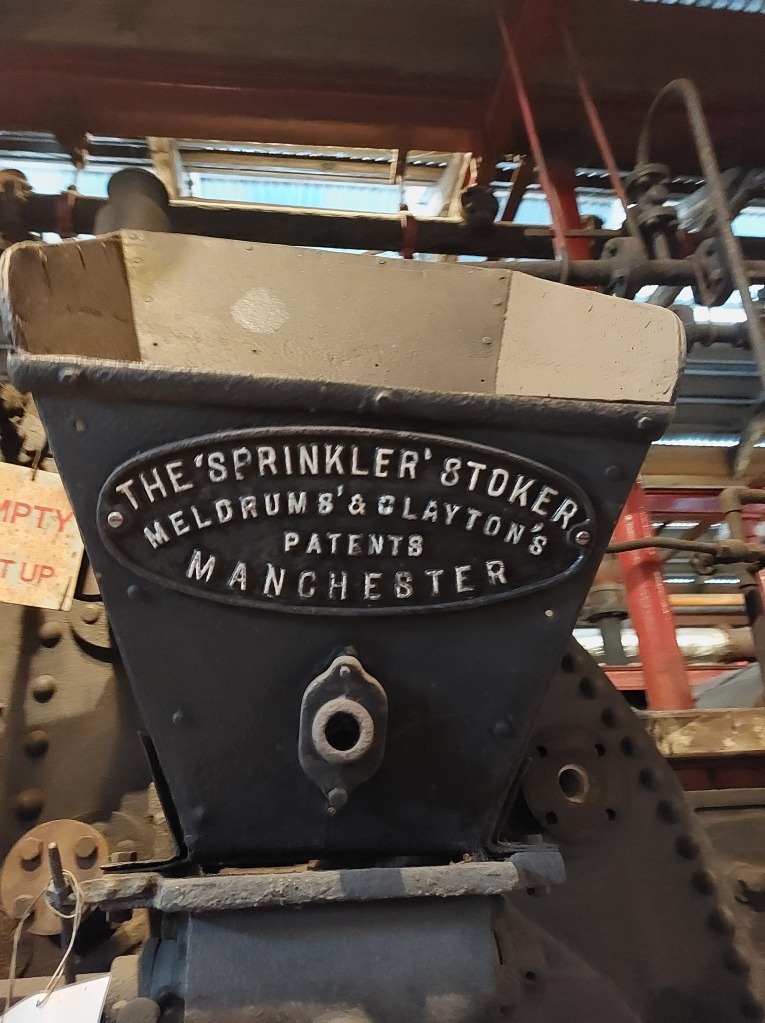
Comparative tests by the Claymills Pumping Engines Trust (CPET) across the three final ‘steaming weekends’ of 2023 and the first ‘steaming weekend of 2024, suggests that the use of biofuel in heritage Lancashire boilers is both possible and can be cost-effective (no more expensive than current coal costs), using rape seed briquettes.
CPET is a volunteer-led and -run preserved Victorian pumping station located in the outskirts of Burton upon Trent. Operational from 1885, the site pumped (initially) mainly brewery effluent consisting of warm waste water, spent hops, yeast and similar some 2.5 miles to a sewage farm which grew to over 800 acres – the typical daily volume of effluent pumped was around 5 million gallons. The site remained in operation until 1969, following which the site became derelict and much of the equipment and smaller engines sold off to collectors and societies. The buildings were listed the mid-1980s and the CPET formed in 1993. Since then the Trust has recovered and restored most of the equipment and steam engines removed during the period of dereliction, and regularly holds steaming weekends for the public, as well as being open to the public on Thursdays and Saturdays, with annual visitor numbers of between 4,000 and 5,000.
All four of the beam engines have now been returned to operation and the site steams for typically 14 days per year, consuming approximately 32 tonnes of coal per year, equating to a CO2 footprint of around 60 tonnes. The Trust is keenly aware of the need to minimise their CO2 emissions as part of their environmental responsibilities, while at the same time continuing to steam – becoming a static museum, or a museum with engines driven electrically or by compressed air, is not on their agenda.
However, the future attractiveness and viability of Claymills as a working steam museum is threatened by the cost and availability of coal (which can only worsen) and by the site being an emitter of greenhouse gases. Hence the experiments in alternative fuel supplies. Five alternative bio-fuels were trialled: chipped wood at 10-15mmm; 65mm compressed pellets; 6-8mm compressed pellets; 60mm compressed rape seed waste; 60mm compressed rape seed waste hand cut into quarters.
Of these, the hand-cut compressed 60mm briquettes containing waste rape seed plant material with rape seed oil as a binder (‘rape seed briquettes’) offered a performance better than other trialled types. CPET report that it was the most similar to coal but required approximately 20% additional by weight compared to coal (i.e. 1.2 tonne of biofuel to replace 1 tonne of coal). After hand-cutting, the briquettes worked well in the stokers.
Andrew Parsons, Chair of the Trust notes that ‘the choice of biofuel is heavily dependent on boiler operating conditions and our findings may not be the best answer for other heritage sites, but we are now confident that this biofuel is a viable option should coal costs continue to increase and availability of suitable coal lessen, and we intend to work on that basis.
‘However, the supply of different types of biomass is developing, and we will keep other possibilities under review, noting that we are likely to have to engage in a medium term contract to secure supplies of smaller rape seed briquettes.
‘Our short-term intention is to continue using rape seed briquettes on one of the two boilers at each steaming with coal on the other boiler, and, when experience has built up, to trial both boilers being fed with rape seed briquettes.
‘As we initially thought, running heritage boilers on novel 21st century fuels has proved an interesting challenge, and while we have identified a medium term solution both in terms of the fuel itself and the techniques for using it effectively, we will continue systematic action research.’
The research was supported through a Small Grant Programme through West Midlands Museums Development. Zak Goodwin and Jacob Fowkes led the experimental programme on behalf of the Trust.
For further details contact: john.freeman@claymills.org.uk


